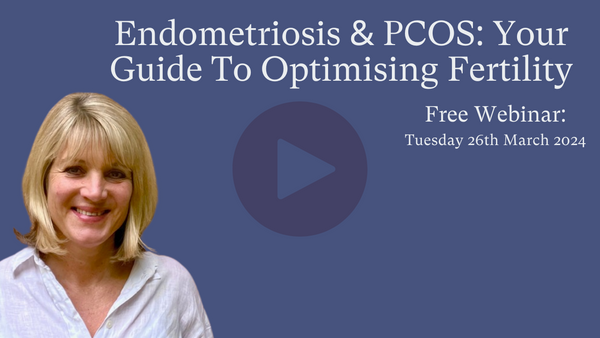
Article
Article
Posted on
Modern women are often bombarded with information on diets, leading many to adopt extreme measures. The aim of this video is to shed light on these misconceptions and offer a balanced perspective on nutrition, especially in relation to fertility.
Nutrition undeniably plays a pivotal role in fertility. When aiming for natural conception, the emphasis is largely on general well-being and furnishing the body with the essential nutrients it requires.
In contrast, In Vitro Fertilisation (IVF) demands distinct nutritional prerequisites. Notably, IVF aims to produce multiple eggs, necessitating an elevated protein intake. Additionally, egg DNA demands micronutrients such as folate, B12, B6, zinc, and selenium.
Overall body health, including a balanced gut microbiome and efficient digestion, can impact nutrient absorption, which in turn, affects egg and sperm quality.
Research suggests the Mediterranean diet positively influences IVF outcomes. This diet balances protein and fats, essential for hormonal balance and stable blood sugar levels. High blood sugar environments are detrimental for both egg and sperm health.
While recommendations vary based on individual circumstances, protein is essential, especially during IVF. For non-vegans and those without lactose intolerance, grass-fed hormone-free whey protein is recommended due to its role in increasing glutathione levels, a potent antioxidant. Vegans might want to consider alternatives like pumpkin seed powders, hemp, or rice-based powders over pea proteins.
Fats are vital for hormone production and reproductive health. However, saturated fats from sources like red meat can be detrimental to both egg and sperm health. Opt for healthy fats from sources such as oily fish, walnuts, avocados, and olive oil. Interestingly, full-fat dairy is often favoured over its low-fat counterpart for optimising egg quality.
A balanced intake of carbohydrates is paramount. While low-carb diets have their merits, they may not be sustainable in the long run. It's crucial to choose whole grains over refined grains and allow oneself the occasional treat, like dark chocolate, to maintain a positive mind-body connection.
Antioxidants in colourful fruits and vegetables play a vital role in egg and sperm quality. Though tropical fruits like bananas and pineapples are delicious, local fruits like berries might offer lower sugar levels.
Consistent snacking isn't ideal for the body, but sometimes a snack, such as a handful of nuts, might be necessary to maintain energy levels throughout a demanding day.
Gluten: Gluten can be pro-inflammatory for some, leading to potential fertility issues. While gluten-free diets can be beneficial, many gluten-free products have additives. Instead, consider naturally gluten-free grains.
Anti-inflammatory Diet: Focus on a diet that minimises inflammation. The Mediterranean diet is exemplary in this regard. Fish, fruits, and vegetables are highly recommended.
Hydration: Staying hydrated is essential, especially during seasons when you might overlook thirst.
Portion Control: Overeating can lead to inflammation. Eating slowly and using smaller plates can be practical steps towards better portion control.
Intermittent Fasting: While popular, intermittent fasting might not be ideal for those trying to conceive, especially during IVF.
Sleep: A good night's sleep is more crucial than most realise. It significantly impacts well-being and nutrient absorption.
Mind-Body Connection: Nutrition isn't just about the body. Emotional and mental well-being plays a significant role in overall health and fertility.

Article

Article

Article